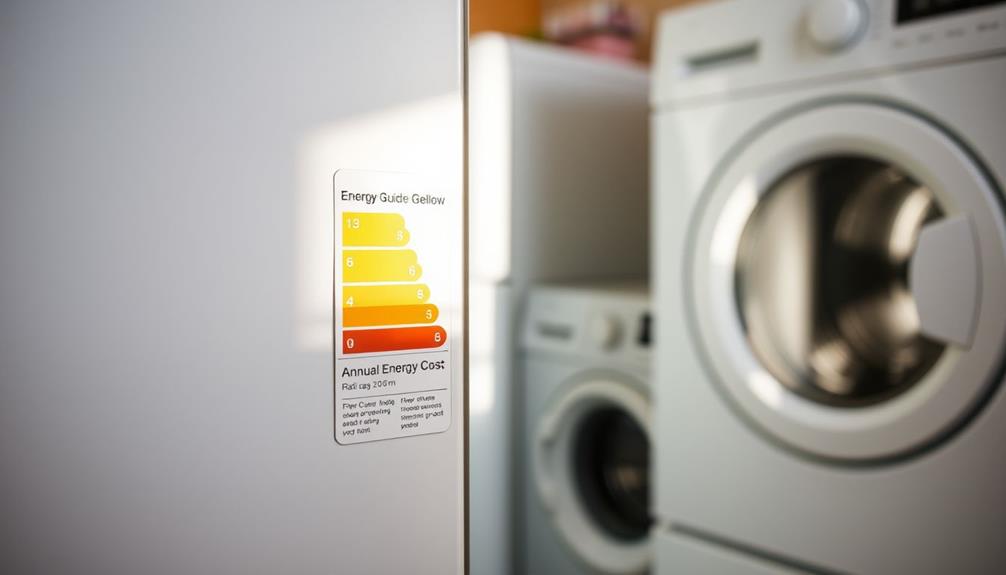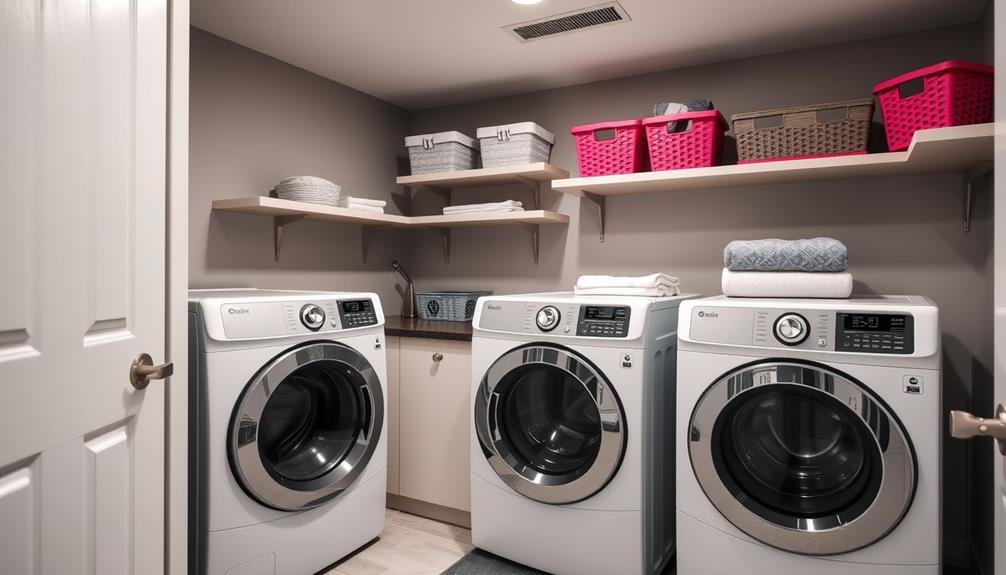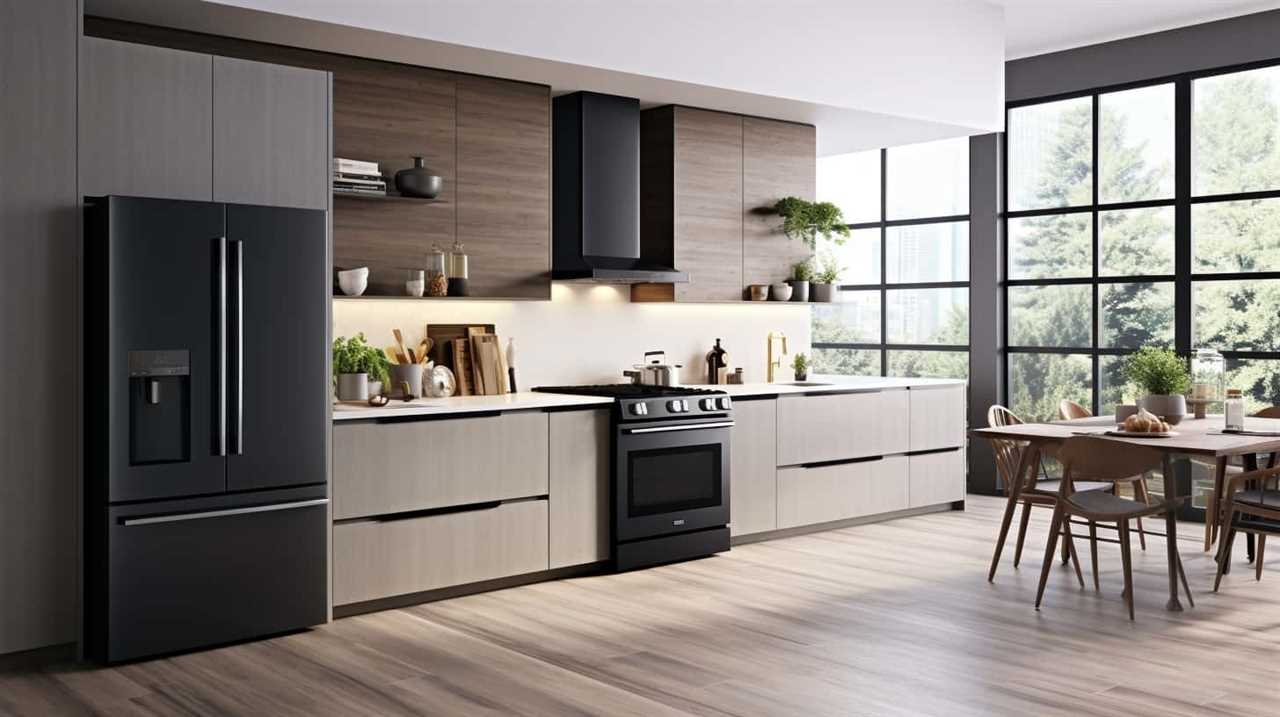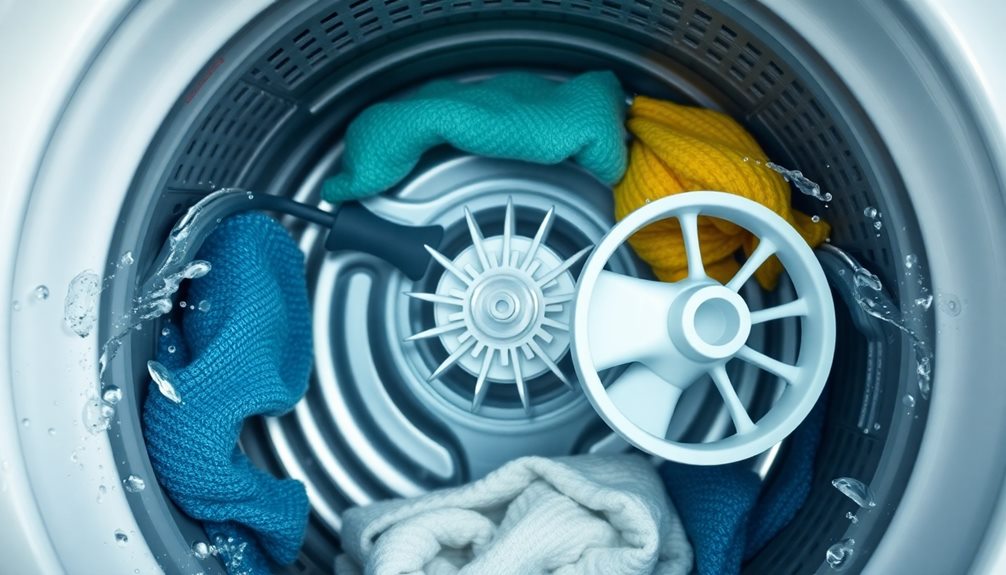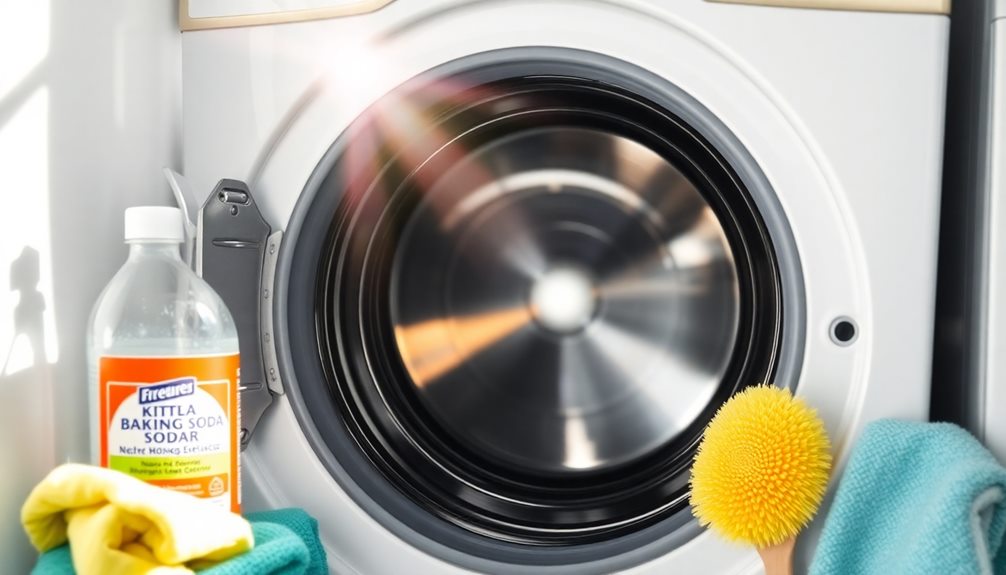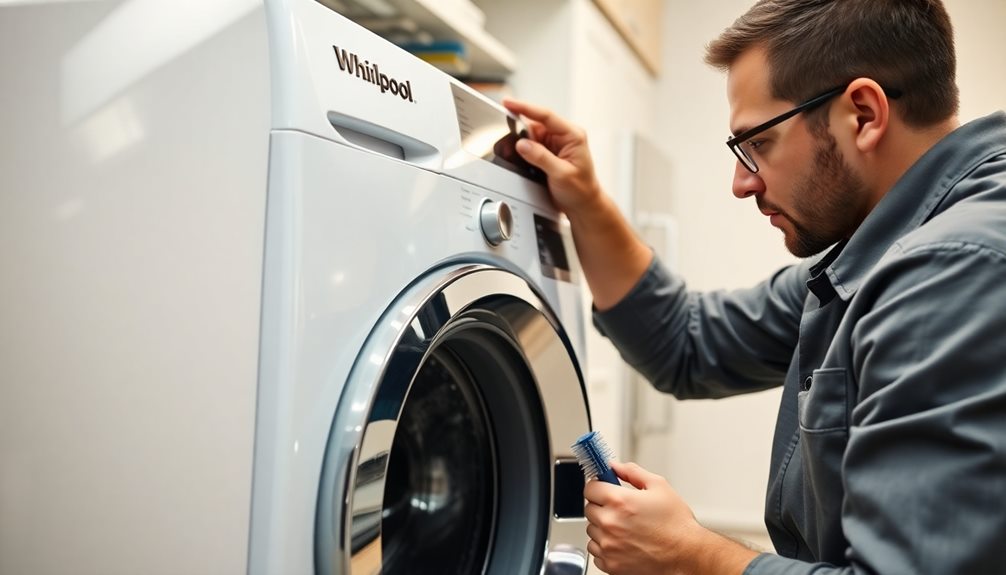Extended warranties for major appliances can provide you with peace of mind, but they often come with restrictions and additional fees. Typically, these warranties can cost between 10% to 20% of the price of your appliance and may not cover common issues such as blockages or user negligence. While the average cost of repairs is around $126, many high-quality appliances require fewer repairs than expected. It is important to carefully consider your options and potential expenses, as alternative protections like home warranties or setting aside money for repairs may be wiser choices. Delve deeper into the specifics to determine the best course of action for your circumstances.
Key Takeaways
- Extended warranties typically cost 10% to 20% of an appliance's price but may not always provide equivalent value due to repair likelihoods.
- Average repair costs for major appliances are around $126, often lower than extended warranty expenses.
- Many high-quality appliances have a low incidence of issues, making extended warranties less necessary.
- Home warranties and savings accounts can be more cost-effective alternatives for managing repair costs.
- Reviewing product reliability and retailer return policies can help consumers make informed decisions about warranty purchases.
Understanding Extended Warranties
An extended warranty for your major appliances can offer peace of mind beyond the standard coverage you get from the manufacturer. These warranties typically extend your protection for 12 months or more, covering mechanical defects or failures but not accidental damage.
The average cost of an extended warranty ranges from 10% to 20% of the appliance's purchase price, with many reasonable deals falling below 15%. Additionally, certain appliances, like garage door openers, may benefit from enhanced security features, making an extended warranty more appealing.
The coverage duration usually spans two to four years, depending on the warranty provider and the type of appliance. When considering an extended warranty, it's essential to carefully review the specific terms and conditions. Many warranties exclude common issues, such as blockages in pumps or filters, and may impose limitations on the claims process.
As a consumer, you should evaluate your appliance's reliability and the likelihood of needing repairs. An extended warranty can lead to higher overall spending if your appliance remains functional throughout its life.
Additionally, consider whether an optional coverage plan aligns with your needs. By understanding these factors, you can make an informed decision about whether an extended warranty is right for you.
Pros and Cons

When weighing your options, understanding the pros and cons of extended warranties can help you make a more informed choice. Here's a quick overview:
| Pros | Cons |
|---|---|
| Provides peace of mind | Average cost can be high |
| Covers unexpected repair costs | Coverage limitations exist |
| Access to qualified technicians | Claims process can be cumbersome |
| Protects against expensive breakdowns | May lead to inflated spending |
Extended warranties can shield you from unexpected costs, as repair costs for large appliances average around $126. However, these warranties often range from 10% to 20% of the appliance's purchase price, which can lead to higher overall spending if your appliance remains functional.
Coverage limitations can exclude common issues like user error, which can frustrate you during the claims process. While many consumers find value in extended warranties—about 34%—it's essential to evaluate appliance reliability before purchasing. Consumer reports suggest that many overpay for coverage based on inflated repair likelihoods. Balancing the pros and cons can guide your decision on whether an extended warranty is worth it for your appliances.
Comparing Home Warranties

Home warranties offer a broader safety net for your household compared to extended warranties. While extended warranties typically focus on individual appliances, a home warranty can cover multiple systems and appliances under one annual cost, usually ranging from $300 to $600.
This approach can be more cost-effective, especially if you own several aging items that could require repair or replacement. Additionally, just as a Gold IRA provides a hedge against inflation, a home warranty can protect you from unexpected repair costs that may arise due to the wear and tear of major appliances diversification reduces overall investment risk.
Extended warranties generally limit coverage to specific devices you purchase, which can lead to higher overall costs if you need multiple warranties. In contrast, a home warranty often includes additional protection for essential home systems like plumbing, electrical, and HVAC, making it a more thorough solution for homeowners.
Moreover, home warranties typically provide access to a network of qualified technicians as service providers, ensuring that you receive reliable appliance repair without the hassle of finding a technician yourself.
With an extended warranty, your options for service providers may be restricted, potentially complicating the repair process. By weighing these differences, you'll see that a home warranty could be a smarter choice for maintaining peace of mind in your home.
Cost and Coverage Analysis

In evaluating the cost and coverage of extended warranties for major appliances, you'll find that these plans typically range from 10% to 20% of the appliance's purchase price, with many reasonable deals hovering around 15%.
Understanding what these warranties cover and their overall value is essential before you decide to purchase an extended warranty. It's also important to take into account the reputation and reviews of warranty providers, as this can impact your overall satisfaction with the service you receive from home cleaning services.
Here are three key points to take into account:
- Coverage Period: Extended warranties often last between two to four years, protecting against mechanical failures and defects that occur after the manufacturer's warranty expires.
- Cost vs. Repair: The average repair cost without a warranty is about $26 more than the warranty itself, meaning you might spend less over time by paying for repairs instead of committing to an extended warranty.
- High-Risk Appliances: Appliances like refrigerators and dishwashers tend to need repairs more frequently in the first five years, making extended warranties potentially more valuable for these high-risk appliances.
Extended warranties primarily cover manufacturer defects and normal wear and tear, but don't include accidental damage or user-induced issues.
As a result, evaluating your appliance's reliability can guide your decision when contemplating a home warranty provider.
Evaluating Repair Costs

Repair costs for major appliances can often surprise homeowners, especially when evaluating the financial implications of extended warranties. The average cost of repairs typically runs about $26 more than the cost of purchasing an extended warranty, which averages around $126. Many consumers overestimate the likelihood of needing appliance repairs, especially for high-quality models. For instance, only 34% of refrigerators and 30% of washers require service within five years.
Additionally, understanding the energy consumption of appliances can help homeowners better anticipate costs associated with their usage, which can also impact repair decisions and budgeting energy consumption of appliances.
When you assess repair costs, it's crucial to take into account that extended warranty claims often come with deductibles or fees, which can inflate your total expenses. This means you could end up spending more on the warranty than on direct repairs. The financial risk of needing repairs might be lower than you expect; many repairs can be considerably cheaper than an extended warranty.
Thus, weighing a savings alternative instead of an extended warranty could be a smart choice. By setting aside funds for potential repairs, you might find that you're better prepared for appliance issues without the added cost of warranties. This approach encourages more informed consumer decisions about when and if to invest in extended coverage.
Making an Informed Decision

When you're considering an extended warranty for your appliance, it's essential to weigh the cost against the potential benefits.
Many retailers offer return policies that can provide some level of protection if you decide against an extended warranty. For instance, you might want to understand the specifics of electronics return policies at major retailers.
You'll want to understand any coverage limitations and explore alternative protection options, like credit card benefits. By doing so, you can make a more informed decision that fits your needs and budget.
Cost Vs. Benefit Analysis
Balancing the cost and benefits of extended warranties for major appliances can feel overwhelming, but it's essential for making an informed decision. When you're evaluating whether an extended warranty is worth it, consider the following key points:
1. Extended Warranties Cost: These typically range from 10% to 20% of your appliance's purchase price, which can be significant for high-end appliances like refrigerators and ovens.
Additionally, evaluating the costs associated with Gold IRA management can provide insights into alternative investment options that may offer better long-term value.
2. Average Repair Cost: The average repair cost for major appliances is around $126, often less than the upfront expense of an extended warranty.
For many, self-funding repairs may be a more economical choice.
3. Reliability Ratings: Research shows many appliances have only a 20% chance of experiencing issues within the first decade.
Higher-quality models often require fewer repairs, raising questions about the extended warranty's actual worth.
Conducting a thorough cost-benefit analysis can help you determine your appliance needs and how much protection you really require.
Coverage Limitations Explained
Before diving into the world of extended warranties, it's important to understand their coverage limitations. Many extended warranties primarily focus on manufacturer defects and normal wear and tear, which means that common issues mightn't qualify for repair and replacement. You'll often find exclusions for accidental damage, user negligence, and cosmetic problems, leaving you with limited options when something goes wrong.
Additionally, understanding the best care and maintenance of your appliances can help prolong their lifespan, reducing the likelihood of needing repairs in the first place; for example, knowing how to properly store butter in refrigeration is a simple task that can prevent spoilage and extend its usability.
Reading the specific terms and conditions of an extended warranty is significant, as coverage limits and exclusions can vary greatly between providers. Be aware that some warranties impose deductibles or fees for claims, potentially driving up your out-of-pocket costs when repairs are necessary.
Additionally, understanding the overlap with manufacturer warranties is important. If your appliance is already covered, an extended warranty may duplicate existing coverage, leading to unnecessary expenses.
It's easy to overlook these nuances, but knowing the coverage limitations can help you make a more informed decision about whether an extended warranty is worth the investment. Always weigh your options carefully to make sure you're not left with unexpected costs or gaps in protection.
Alternative Protection Options
Weighing your options for appliance protection can lead to smarter financial decisions. While extended warranties might seem appealing, consider these alternative protection options that could better suit your needs: Additionally, think about how eco-friendly energy sources, such as geothermal energy for heating, can provide long-term cost savings that may lessen the burden of appliance repairs.
- Home Warranties: Typically costing between $300 and $600 annually, they cover multiple appliances and systems, which is ideal for households with several appliances.
- Credit Card Benefits: Many credit cards extend warranties on purchases, offering coverage for an additional year or more. This could save you money as you mightn't need to buy an extended warranty.
- Savings Account: Setting aside funds in a dedicated savings account for potential repairs can provide flexibility. This approach allows you to directly manage your repair costs without committing to a warranty.
Additionally, researching product reliability through resources like Consumer Reports can inform your decisions. High-quality appliances are less likely to break down, and understanding retailer return policies can offer added security against defects.
Frequently Asked Questions
What Are Two Reasons Not to Buy an Extended Warranty?
You might not want to buy an extended warranty because repair costs are often lower than the warranty price, and claims processes can be frustrating, leading to delays and complications when you need coverage.
Is It a Good Idea to Spend Money on Extended Warranties?
You'd think spending money on extended warranties is a smart choice, but often it's a gamble. Instead of investing in coverage, consider saving for potential repairs; you might end up with more cash in your pocket.
What Is the Best Extended Warranty Company for Appliances?
When choosing an extended warranty company for appliances, consider providers like American Home Shield or Choice Home Warranty. Look for coverage options, customer reviews, and claim processes to guarantee you're making the best choice.
Is It Worth Taking Out Extended Warranties?
When considering extended warranties, you should weigh the cost against potential repair expenses. If you're risk-averse and want peace of mind, it might be worth it; otherwise, you could save the money instead.
Conclusion
So, you're standing at the appliance aisle, contemplating whether to splurge on an extended warranty like it's a sparkling unicorn or just a plain old horse. Sure, it might save you from a pricey repair down the line—if your fridge doesn't decide to spontaneously combust in a dramatic spectacle. But remember, sometimes it's just as savvy to roll the dice and let fate decide if your dishwasher will last longer than your last relationship.
With a keen eye for detail and a relentless pursuit of quality, Alex leads our editorial team. Bringing over a decade of experience in technology journalism and a deep passion for innovation, Alex ensures that Appliances Labs remains at the forefront of the industry. Under his leadership, our content meets and exceeds the highest accuracy, relevancy, and usefulness standards. Alex’s expertise in curating content that resonates with our readers has made Appliances Labs the go-to source for trustworthy appliance and smart home advice.



